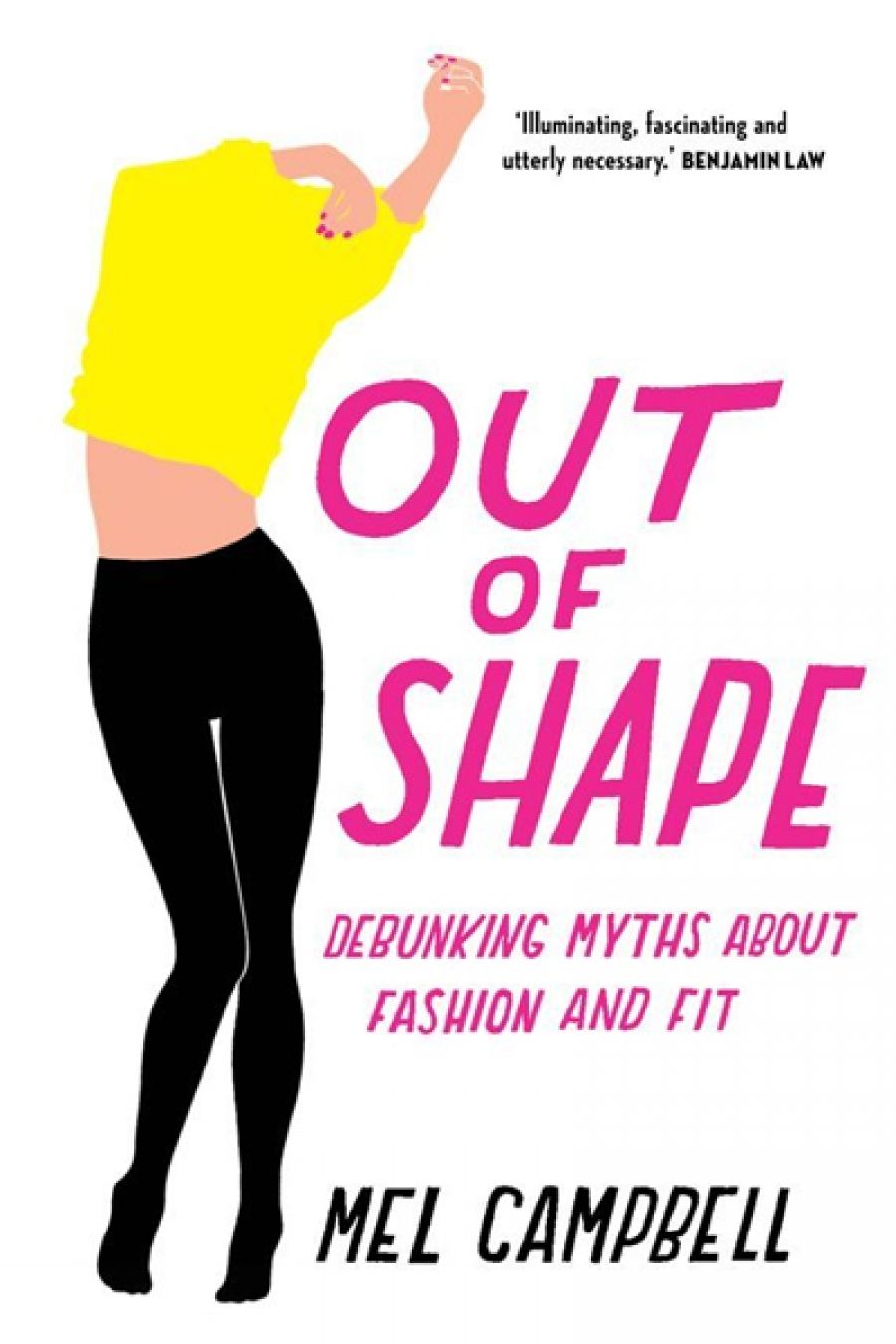
- Free Article: No
- Contents Category: Fashion
- Subheading: Debunking Myths about Fashion and Fit
- Custom Article Title: Dion Kagan reviews 'Out of Shape' by Mel Campbell
- Review Article: Yes
- Article Title: Out of shape
- Online Only: No
- Custom Highlight Text:
Much has been said about our tendency to feel bad about our bodies, but not quite in the way Mel Campbell goes about it. The fit of clothes is a more interesting, if more elusive, cultural story than the predictable outrage over fashion’s ever slimmer bodies or recent storms about ‘plus size’ models. Out of Shape addresses these controversies but also goes to the frontline of fashion and fit: malls, big-brand manufacturers, and their fraught strategies for streamlining a comprehensible – and marketable – logic between clothing size and the heterogeneous human body. Though it is her first full-length work, the book explores a question that Campbell has been pondering in blogs, journalism, and reviews for years: why can finding clothes that fit well feel so torturous?
- Book 1 Title: Out of Shape
- Book 1 Subtitle: Debunking Myths about Fashion and Fit
- Book 1 Biblio: Affirm Press, $24.95 pb, 228 pp, 9781922213075
It is no surprise to learn that, despite the patina of evidence-based measurement implied by the concept of ‘standard sizes’, clothing sizes are a problematic cultural construct. What is surprising is the arbitrary extent to which these ‘categories of failure’ have evolved. To illuminate this history Campbell talks to industry professionals and academics, explores historical collections, visits vintage fairs, and relays the hilarious testimony of survivors of wardrobe malfunctions. Beneath the quasi-sciences of physiognomy and somatotyping and the anthropometric data of national sizing surveys, she finds an ideology that she calls ‘orthovestia’ (from the Greek ortho-, meaning ‘proper’, and the Latin vestir, meaning ‘dress’). Orthovestia circulates ubiquitously, from the corrective advice of reality television to bra sizing. ‘What makes orthovestia so socially corrosive,’ Campbell writes, ‘is that it piggybacks on our trust in science to persuade us that some body shapes are good and others bad.’
But Out of Shape is not a rant about feeling bad. The research is fastidious, the analysis cogent, the tone incisive and witty. When Campbell shares her own ambivalent feelings – allure, comfort, shame – the relationship between these bigger industrial and cultural histories and our own love–hate relationships with clothes becomes strikingly and satisfyingly clear.


Comments powered by CComment